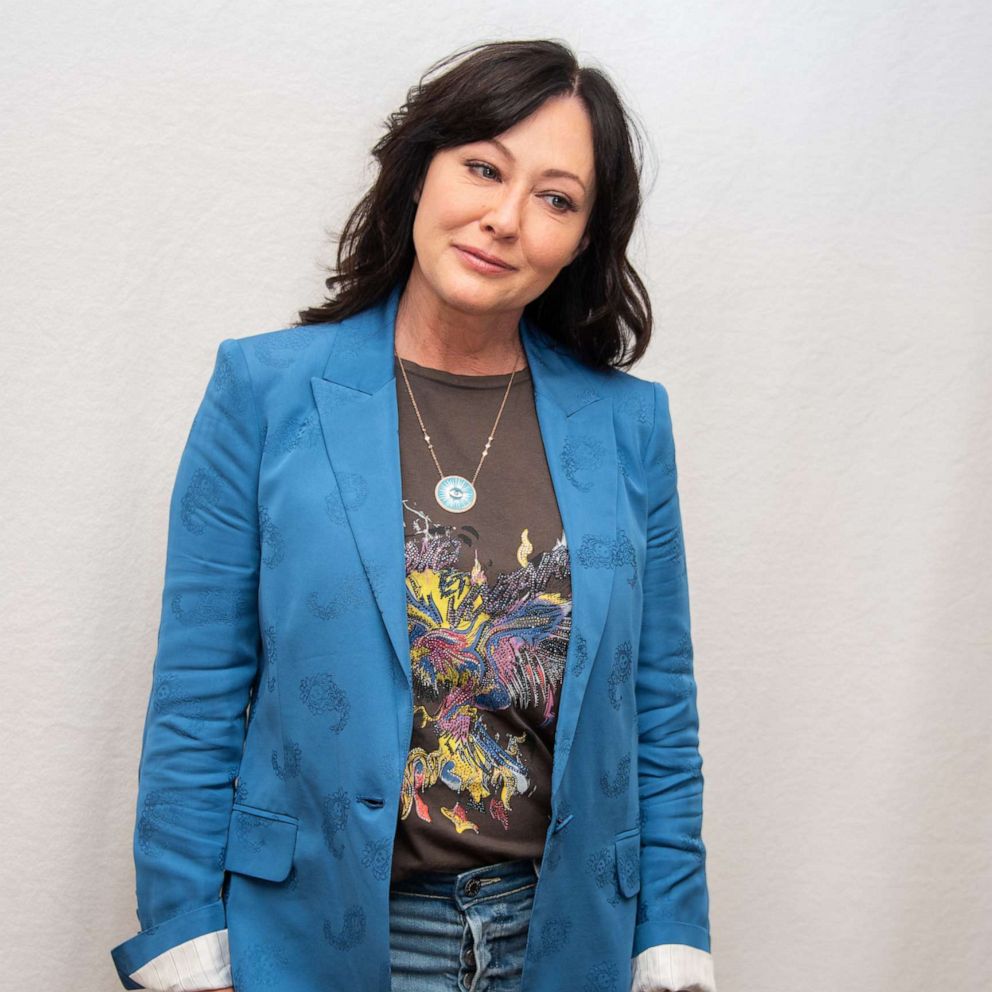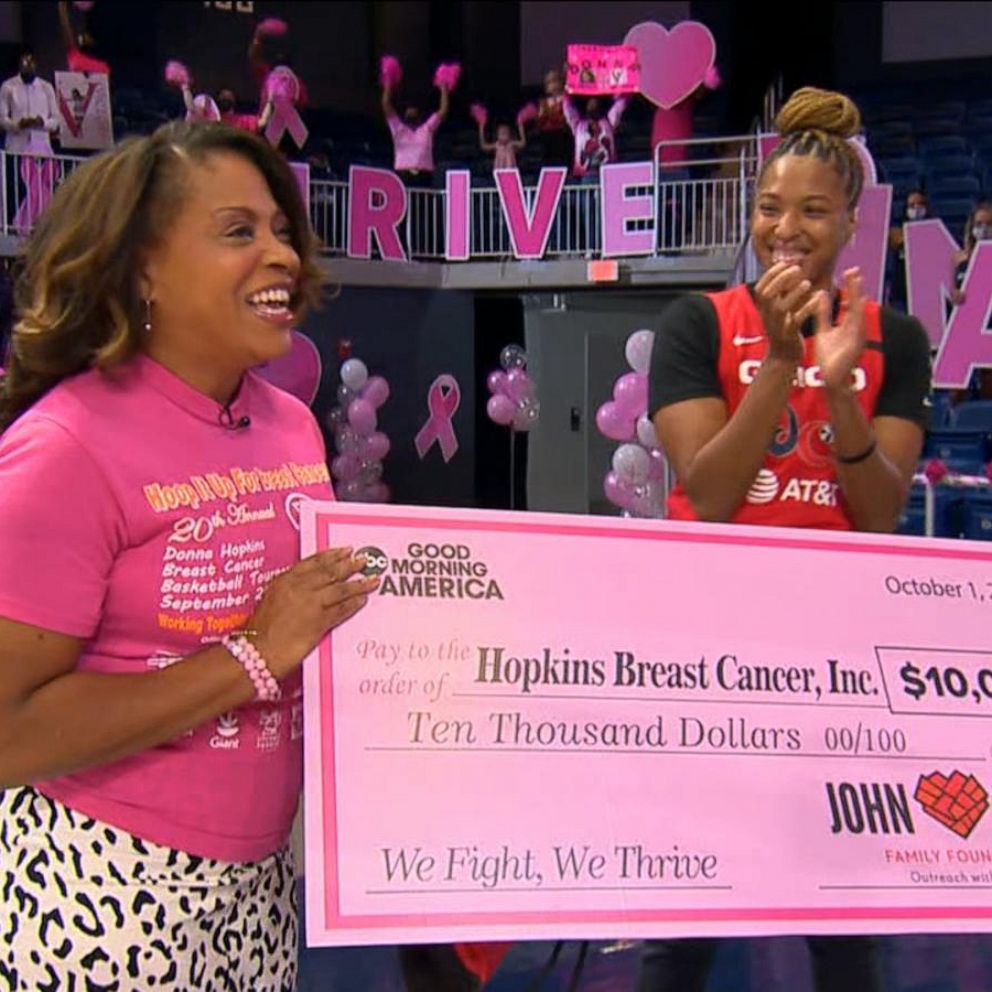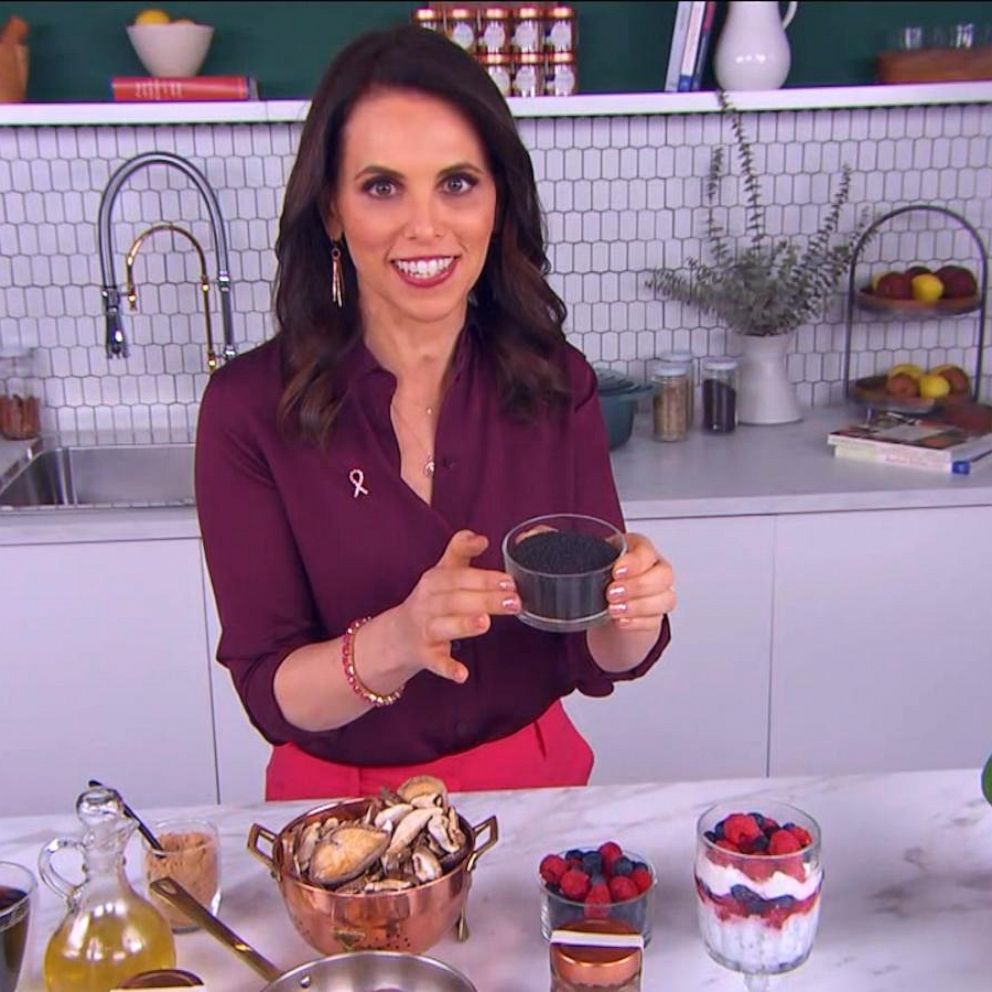This woman battled breast cancer, including 16 rounds of chemotherapy, during the global coronavirus pandemic
"Sometimes the adversity can remind you how strong you really are."
More than 300,000 new cases of breast cancer are expected to be diagnosed in women in the United States in 2020, which means thousands of women will have been diagnosed with and fought breast cancer during the coronavirus pandemic.
Kelly Conner, a mom of two young daughters and two older stepchildren, is one of those women.
She was just a few weeks into chemotherapy treatment for Stage 2B breast cancer, one of the last stages before the disease has spread to organs, when the pandemic sparked a national shutdown in March.
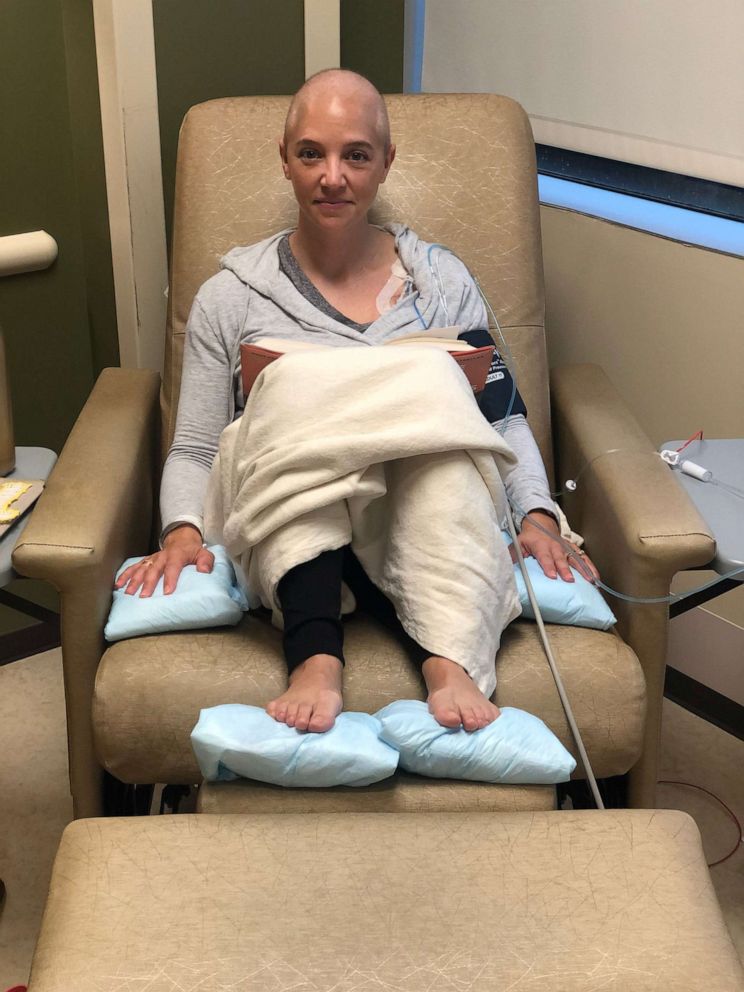
With Conner, 41, of Houston, Texas, no longer able to have her husband by her side during her chemotherapy treatments due to COVID-19 restrictions, her husband Bert got creative. He held a handmade sign outside MD Anderson Cancer Center in Sugar Land, Texas, that read, "I can't be with you but i'm [sic] here." It also said "love you" and included a thank you to staff working inside the hospital's walls.
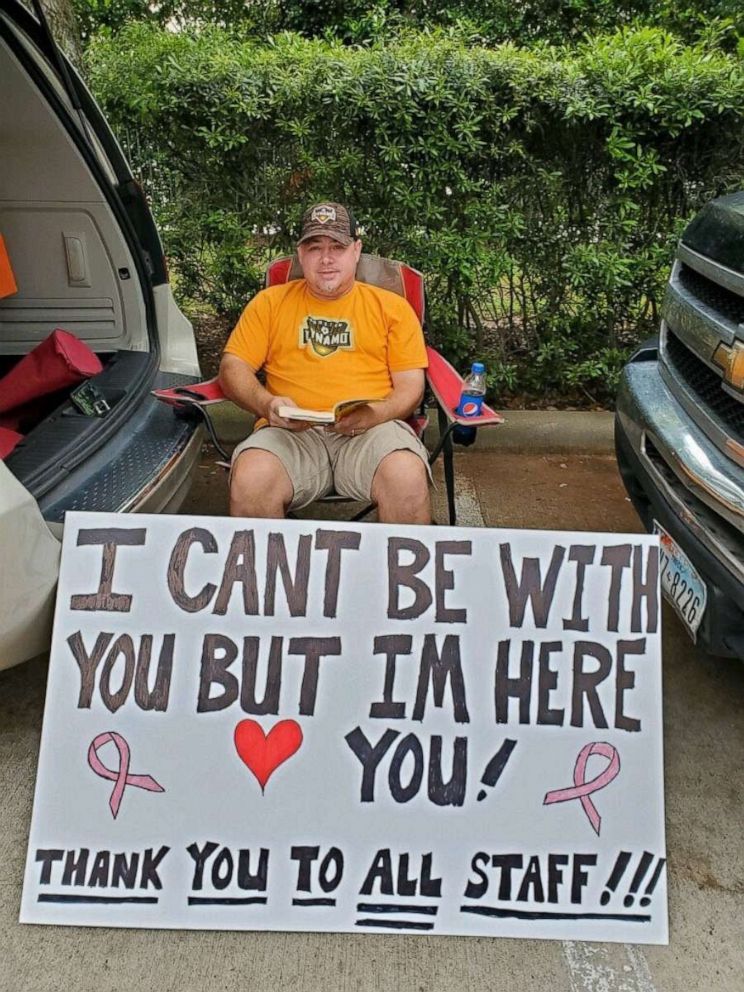
The sign went viral as a symbol of both a husband's love and the strange times the country was enduring, but it was just one part of Conner's long journey of fighting breast cancer during a pandemic.
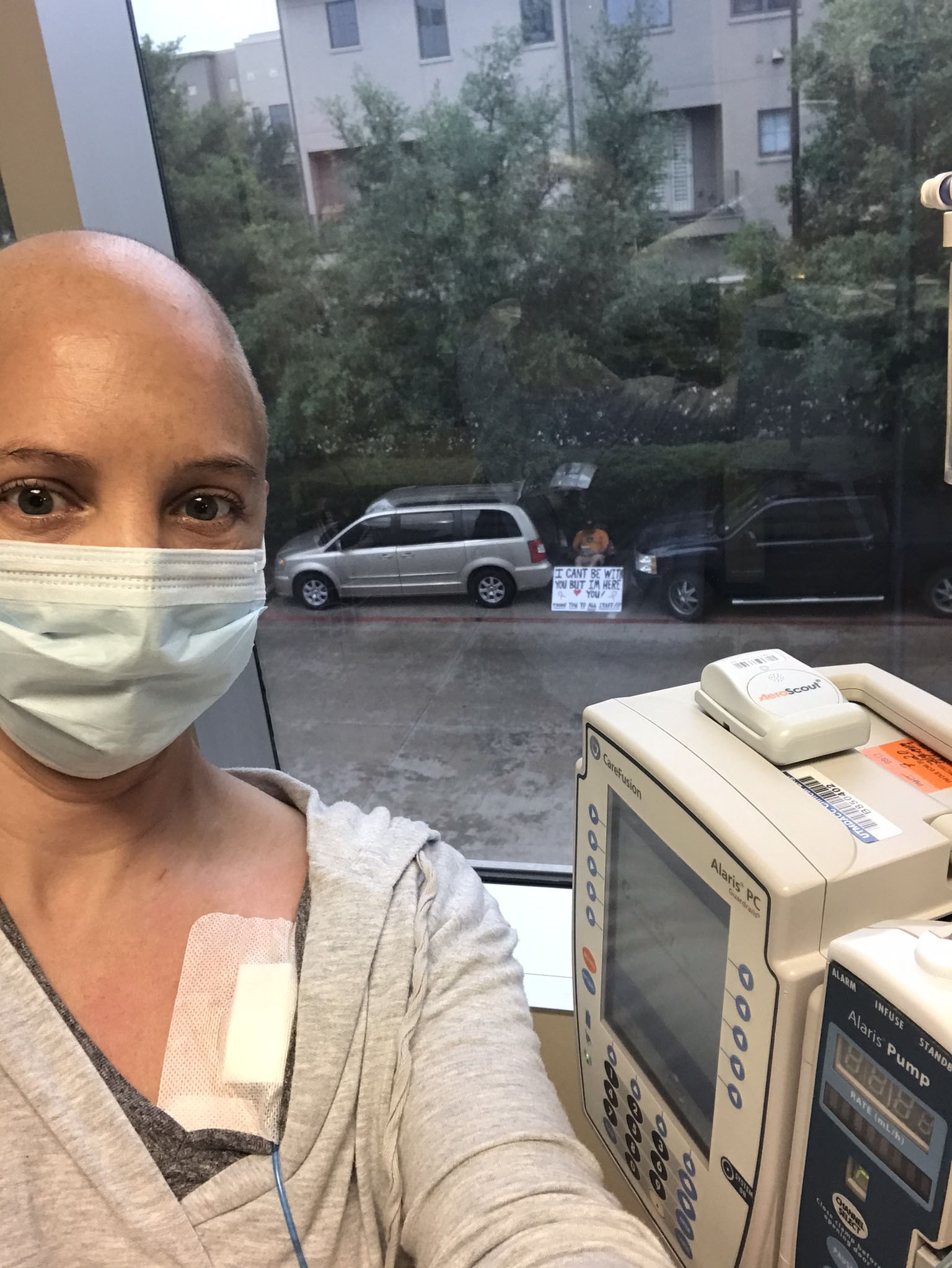
She would go on to endure more than a dozen chemotherapy treatments and doctors' appointments alone, with no one allowed to be by her side.
In addition to her husband's creativity, Conner's kids also found ways to support her from afar.
"My 13-year-old, she actually, during chemo, she would write little words of encouragement on sticky notes and leave them all over the house, hidden," said Conner. "My kids have been amazing."
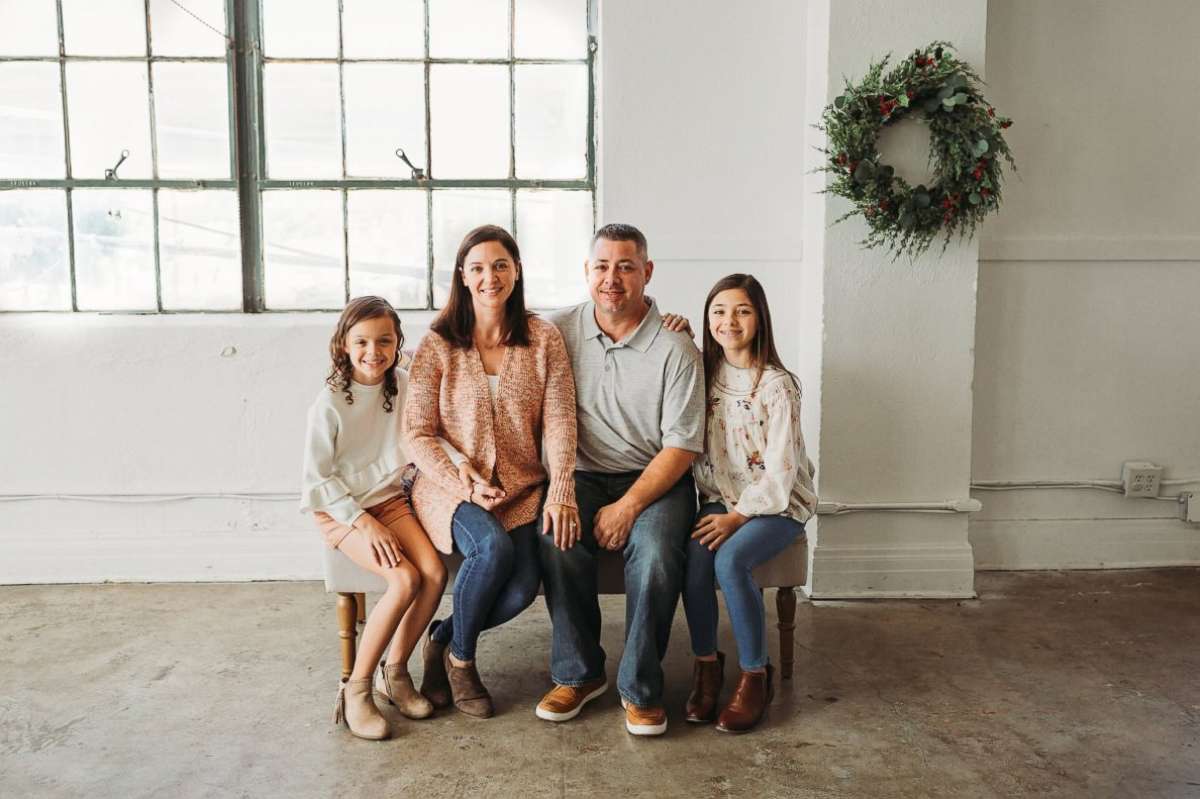
With schools closed due to the pandemic, Conner oversaw her daughters' remote learning education, while also working from home in her own job in the retail industry.
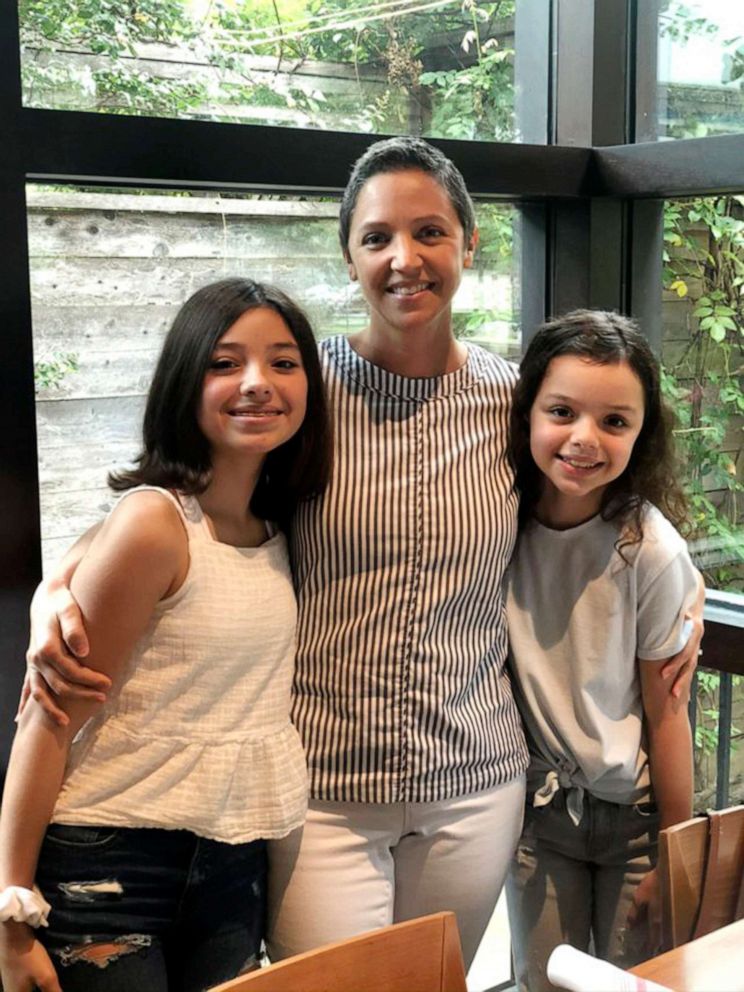
Her husband, Bert, closed his locksmith business completely during the height of the pandemic so as not to risk bringing COVID-19 home to his wife and family.
Then in May, just as Conner was nearing the end of chemotherapy, she was furloughed from her job, without pay.
Around that same time, Conner received word from doctors that a CT scan showed a spot on her lung had doubled in size and it would be a "miracle," she recalled doctors saying, if she did not have Stage 4 metastatic breast cancer, which is not curable and would have required a combined mastectomy and lung resection surgery to try to treat it.
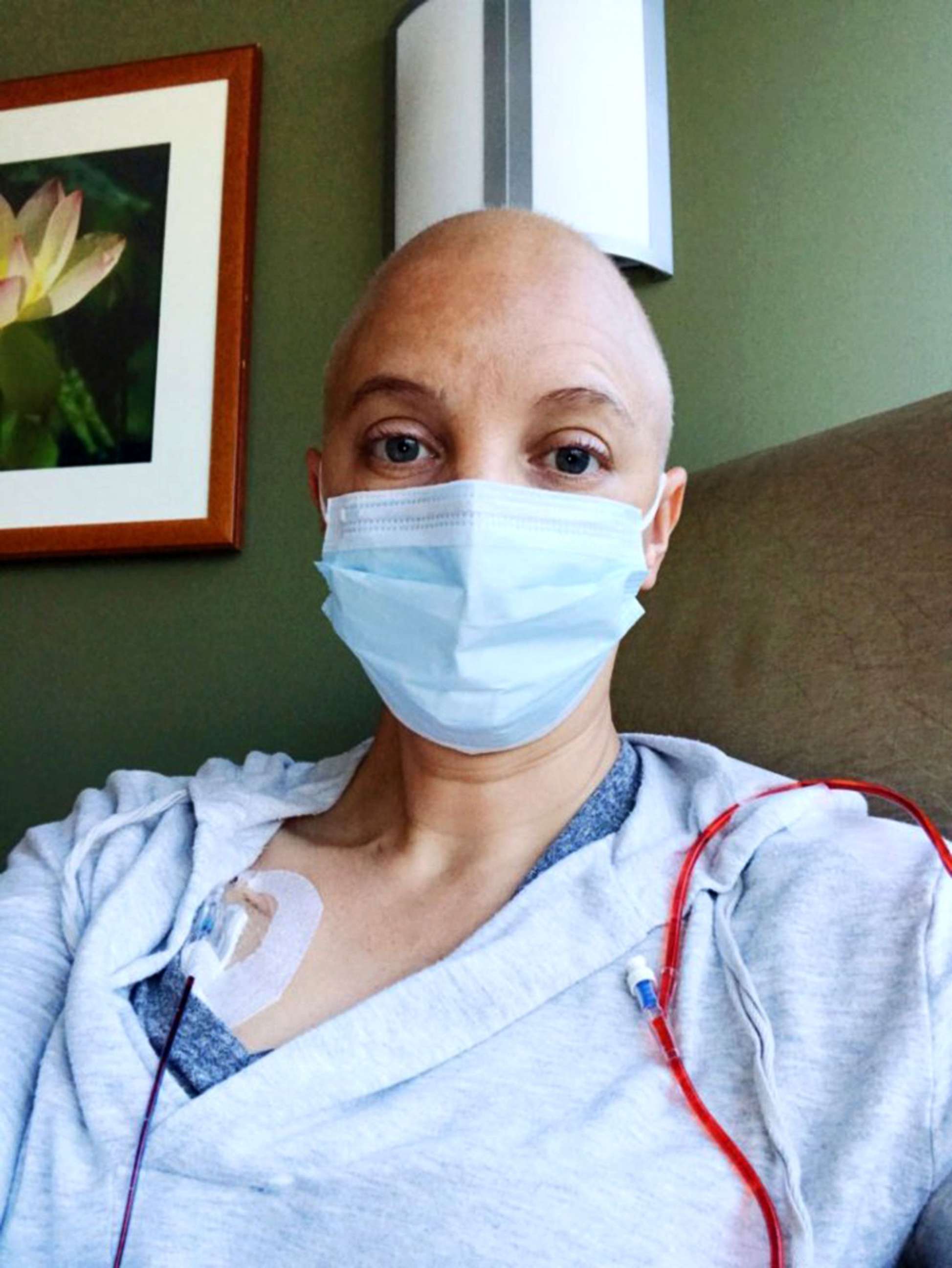
"I think at the time when I was going through the worst of it, I would wake up and think I’m just going to tackle the day," Conner said. "I’m a planner and I definitely plan my life far in advance, and I just think that wasn’t an option this year, for anybody really."
"I just had to stop thinking and planning and worrying for the future," she added.
After spending nearly a week fearing she had non-curable cancer, Conner received the news that the spot on her lung was not cancerous and just an infection.
Conner -- who also lost her grandmother in June and was not able to attend her funeral in-person -- underwent a mastectomy on June 29. Just one week later, while home recovering, she found out her employer was filing for bankruptcy.
As she recovered from her mastectomy, Conner began doing job interviews on Zoom so that she wouldn't lose her health insurance and more pay in the midst of a cancer battle.
"I didn’t have any hair and I didn’t feel like myself," Conner said of that time. "I didn’t want to have to talk about my cancer treatments and what was going on with my health during the interview so I got a wig and at least on Zoom it’s a little better."
"But it was really hard because there was a lot of competition," she added, noting how hard hit the retail industry has been during the pandemic.
By mid-July, Conner both had a new job with a Houston-based retailer and learned from doctors that her treatments had been successful in destroying the cancerous cells in her body.
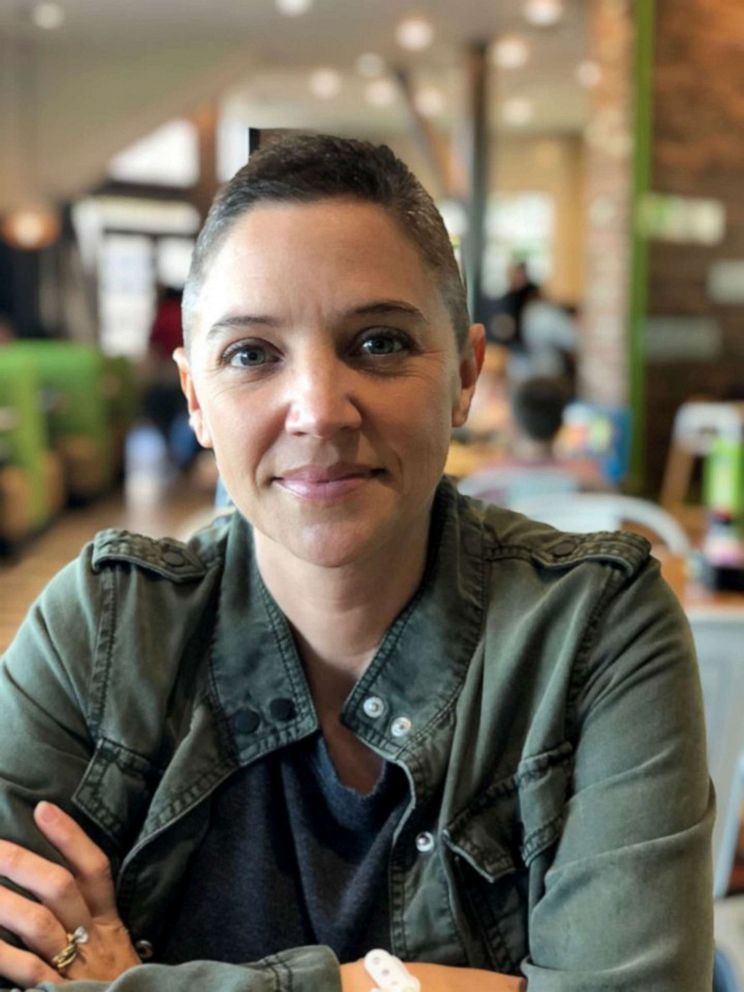
Conner began her new job in August, just four weeks after her mastectomy, so that she would not lose her health insurance benefits. At the same time she also began what would hopefully be one of the final parts of her treatment, daily radiation.
"I’d go to radiation treatment really early in the morning and then go to work," she said. "It was every single day for six weeks."
Through it all, Conner said she kept perspective by remembering the pain a lot of people faced during the pandemic, and by drawing on the strength of the support of her family and friends.
On her final day of chemotherapy, her husband and children were able to watch her ring the bell and her husband covered his van with messages from friends across the country.
"I think one of the most challenging things [during the pandemic] is not having the ability to visit with family and see people," said Conner. "So many people wanted to reach out and show their support and you just have to come up with creative ways to do that during this time."
"People would send me cards, send me messages, and that really does mean everything, just those little messages and reminders that people are thinking of you," she said.
Faced with her own mortality, Conner also managed, just 11 days after her mastectomy surgery, to check off a lifelong goal. She opened her own gifting business, an idea she'd held for over a decade.
"In the face of all the challenges during the pandemic, sometimes the adversity can remind you how strong you really are," she said. "You might even surprise yourself with what you can accomplish if you just remain positive and continue to take things one day at a time."
